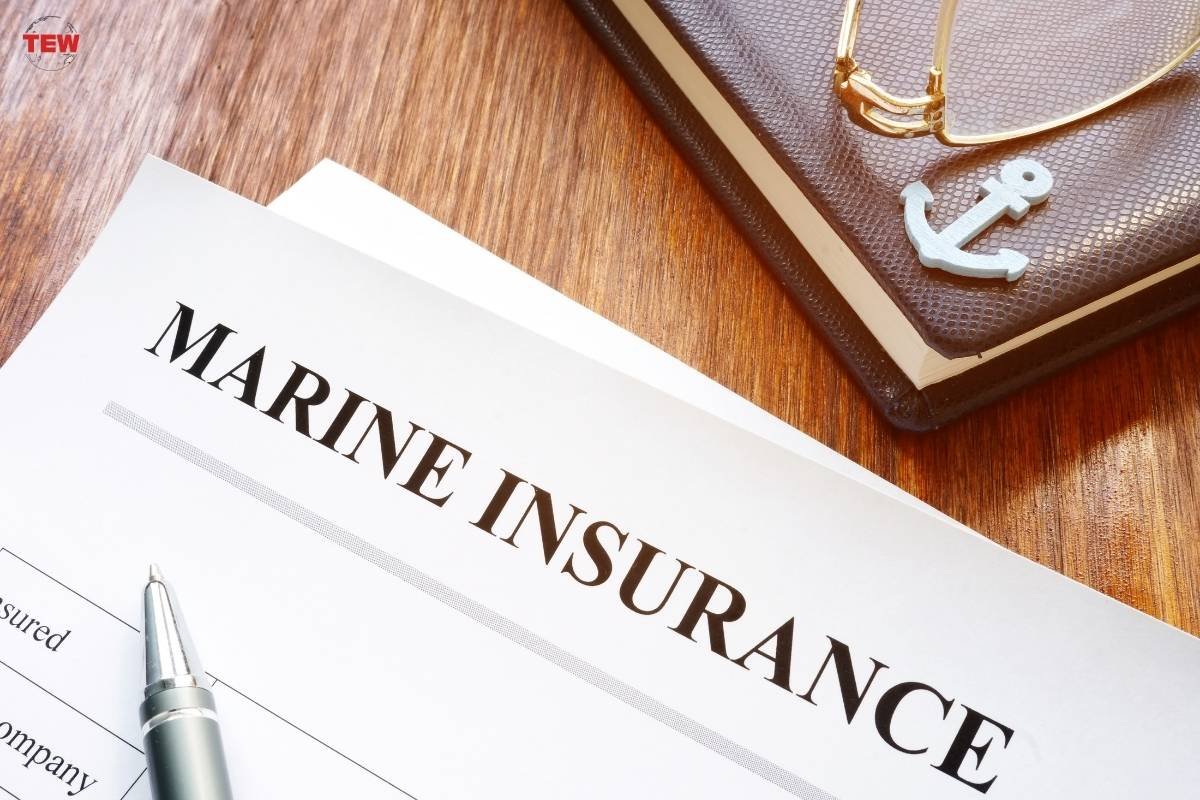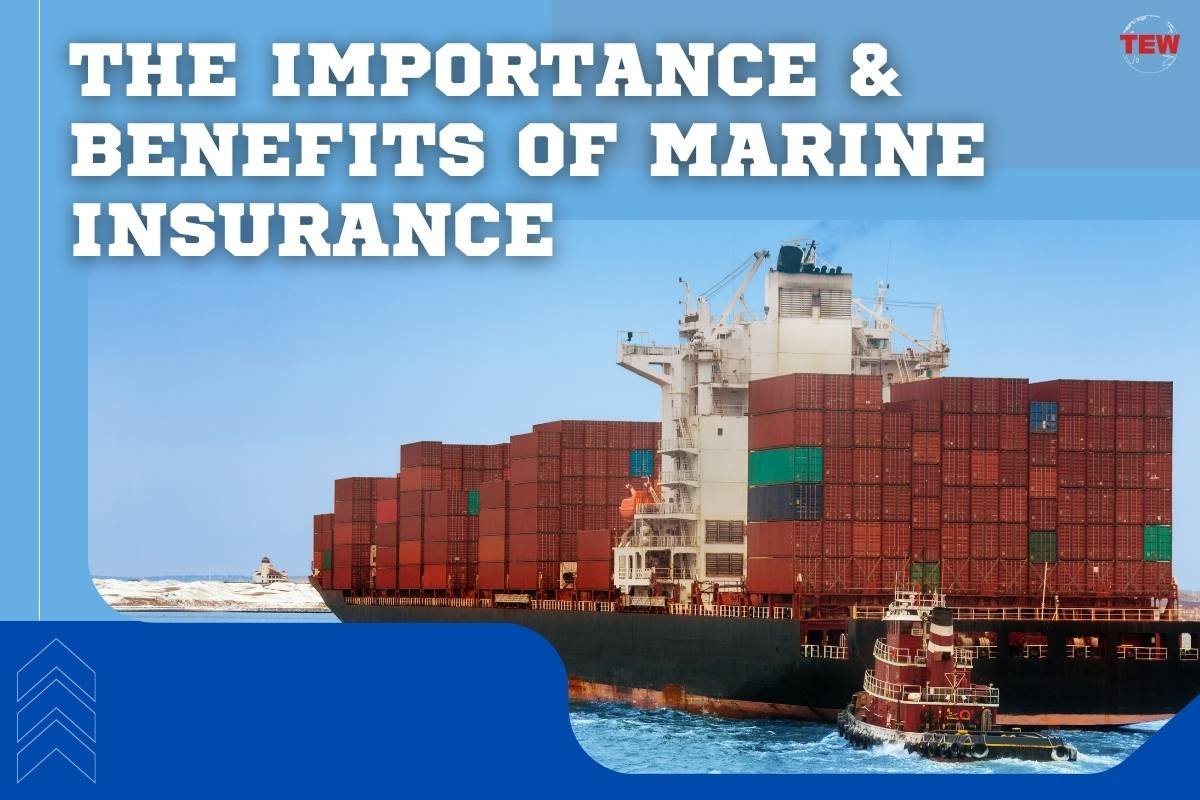In the vast and unpredictable world of maritime operations, the significance of marine insurance cannot be overstated. As we delve into the complexities of shipping and logistics, one aspect that emerges as a cornerstone for safeguarding the financial stability of businesses involved in these sectors is shipping insurance.
This specialized form of insurance plays a pivotal role in providing a safety net against the myriad of risks that accompany the transportation of goods across the globe. From the loss or damage of cargo to the legal and financial repercussions of maritime incidents, shipping insurance stands as a bulwark, ensuring that businesses can navigate the turbulent waters of international trade with confidence and security.
The landscape of marine insurance is as dynamic as the seas it protects against. With advancements in technology and the ever-evolving nature of global trade, the importance of customizing marine insurance policies to fit specific needs and risks has never been more critical.
This article aims to explore the multifaceted benefits of marine insurance, from coverage options and risk management to the impact of technological innovations and the challenges and opportunities that lie ahead. Join us as we embark on a journey to understand the indispensable role of shipping insurance in the world of maritime commerce.
Understanding Marine Insurance
What is Embedded Insurance?
Marine insurance is a critical component of the global trade and transportation sector, designed to provide financial protection against the risks associated with the movement of goods, ships, and other cargo across international waters and domestic routes.

This type of insurance covers a wide range of risks, including but not limited to damage, loss, or theft of cargo, ships, and any transport by which property is transferred, acquired, or held between the points of origin and final destination.
Types of Marine Insurance Policies
The marine insurance market offers various policies to cater to the different needs of the maritime industry, ensuring comprehensive protection against potential risks.
- Cargo Insurance: Protects the goods being transported over water from loss or damage. It is essential for businesses involved in international trade, to cover the cargo’s value and any shipping costs.
- Hull Insurance: Focuses on the physical damage to the ship or vessel itself. This policy is vital for shipowners, covering everything from the hull and machinery to the furniture on board.
- Freight Insurance: Offers protection for the shipping companies. It covers the loss of freight revenue to the shipowner if the cargo is lost or damaged and cannot be delivered.
- Protection and Indemnity (P&I) Insurance: A liability insurance for practically all maritime liability risks associated with the operation of a vessel, including but not limited to risks of environmental damage, injury, or death of crew members and passengers.
The Importance of Marine Insurance
Marine insurance serves as a cornerstone in the global trade and shipping industry, providing essential protection against the myriad of risks that maritime operations face. From natural disasters to human errors, the sea transport sector is fraught with potential perils that can result in significant financial losses. This section delves into the critical role of marine insurance in managing these risks and ensuring the continuity of maritime activities.
Risk Management in Maritime Operations
Marine insurance is instrumental in mitigating the risks associated with sea transport. It offers a safety net for businesses, ensuring that the financial impact of unforeseen incidents is minimized. This insurance covers a wide range of scenarios, including but not limited to cargo loss or damage, ship collisions, and environmental disasters.
Legal and Financial Protection
Marine insurance is not only a risk management tool but also a legal requirement in many jurisdictions. It ensures that businesses comply with international maritime laws and regulations, which mandate certain levels of insurance coverage for operating ships and transporting goods.
Benefits of Marine Insurance
Coverage for Loss or Damage
The benefits of marine insurance offer comprehensive coverage for ships, cargo, and other maritime properties against a wide range of risks. This includes protection from physical damage, theft, piracy, and natural disasters. The insurance ensures that in the event of such incidents, the financial impact on the business is minimized.
Marine insurance policies typically cover incidents such as collisions at sea, fires on board, cargo theft during transit, and damage from severe weather conditions. These examples highlight the broad scope of protection provided by marine insurance, safeguarding businesses from significant financial losses.
Business Continuity and Financial Stability

One of the key benefits of marine insurance is its role in supporting business continuity after maritime incidents. By offering compensation for losses incurred, marine insurance helps businesses recover quickly and maintain their operations without significant disruptions.
- Supporting Business Continuity: In the aftermath of a maritime incident, marine insurance provides the necessary financial support to repair or replace damaged ships and cargo, allowing businesses to resume their operations as swiftly as possible.
- Ensuring Financial Stability: For businesses involved in shipping and logistics, marine insurance is instrumental in ensuring financial stability. It protects against potentially crippling financial losses, helping businesses manage their risks effectively and maintain their financial health.
Choosing the Right Marine Insurance Policy
To take benefits of marine insurance, selecting the appropriate marine insurance policy is crucial for safeguarding your maritime operations against unforeseen risks and damages. This section delves into the essential considerations and steps for customizing your marine insurance to ensure comprehensive protection.
Factors to Consider
When choosing a marine insurance policy, it’s important to evaluate several key factors to ensure that your maritime operations are adequately protected. These include:
- Coverage Needs: Assess the specific risks associated with your maritime operations. Consider the types of goods being transported, the routes taken, and potential hazards like piracy, bad weather, or political instability. For getting benefits of marine insurance, your coverage needs will vary based on these factors.
- Insurer’s Reputation and Financial Strength: Research potential insurers to ensure they have a strong financial foundation and a positive reputation in the industry. An insurer’s ability to pay claims promptly and their experience in marine insurance are critical for reliable coverage.
Customizing Your Marine Insurance Policy

Marine insurance policies offer a broad spectrum of coverage, but the key to maximizing the benefits of marine insurance lies in customization. Tailoring these policies to fit specific needs and risks ensures that businesses are adequately protected against the unique challenges they face in maritime operations.
This customization can range from adjusting coverage limits to including specific clauses for certain types of cargo or routes. Understanding policy exclusions and limitations is equally crucial, as it helps businesses avoid unexpected gaps in coverage. This knowledge empowers policyholders to make informed decisions and ensures that their marine insurance policy provides the comprehensive protection they need.
Technological Advancements and Their Impact
The marine insurance sector is rapidly evolving, thanks in part to technological advancements. These innovations play a pivotal role in assessing risks and determining premiums, making the underwriting process more accurate and efficient.
From satellite tracking to data analytics, technology offers new ways to monitor and manage the risks associated with maritime operations. Furthermore, innovations in marine insurance products and services are expanding coverage options and enhancing the overall customer experience. This technological evolution is setting the stage for a more resilient and responsive marine insurance industry.
Challenges and Opportunities
The marine insurance industry faces a dynamic landscape of emerging risks, from cyber threats to environmental concerns. These evolving challenges underscore the importance of adaptive and forward-thinking insurance solutions. At the same time, the growth of global trade presents significant opportunities for the marine insurance sector.
As international shipping volumes increase, so does the demand for comprehensive and innovative insurance products. This environment not only tests the industry’s resilience but also opens new avenues for growth and development. By addressing these challenges and leveraging opportunities, the marine insurance industry can continue to play a crucial role in supporting global commerce.
Navigating the Seas of Commerce: The Unwavering Anchor of Marine Insurance
In the vast expanse of global trade, marine insurance emerges not just as a necessity but as the backbone of security and assurance for businesses worldwide. From the meticulous customization of policies to the innovative strides in technology shaping the future of maritime operations, marine insurance stands as a testament to the industry’s resilience and adaptability.
It safeguards against the unpredictable, ensuring that businesses can weather the storms of loss and damage, maintain continuity, and seize the opportunities that lie in the burgeoning growth of global trade.
As we’ve explored the multifaceted essential aspects and benefits of marine insurance, it’s clear that this form of protection is indispensable. It offers more than just financial stability; it provides peace of mind, enabling businesses to venture boldly into the international waters of commerce.
Whether you’re a seasoned shipper or new to the maritime world, understanding and leveraging the power of marine insurance is key to navigating the challenges and capitalizing on the opportunities of global trade.
In conclusion, as the tides of commerce ebb and flow, marine insurance remains the steadfast anchor, ensuring that businesses can sail confidently into the future. Embrace it, and let it steer you towards success and beyond.




